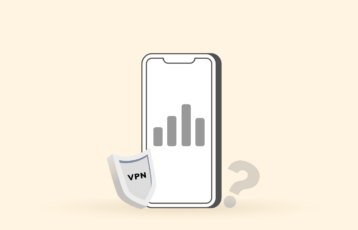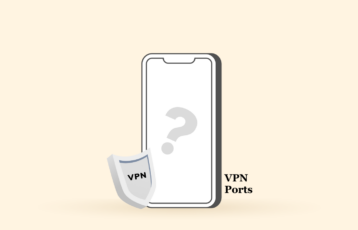The primary function of a Virtual Private Network (VPN) is to hide your browsing data and several other things. The tool does its job by changing your IP address, encrypting your data, and ensuring it is undetectable.
The core VPN functionality typically lies within the encryption protocols it uses. Different types of encryption protocols exist today, serving various purposes.
Let’s get started with a detailed VPN protocol explanation and comparison.
Common VPN protocols – Quick list
Each protocol that VPNs use has its pros and cons, as we’re about to learn, but if you’re in a hurry, here’s a quick list for you.
- OpenVPN will be ideal when the third-party app majorly handles the setup.
- SSTP is an excellent option for Windows, assuming that you fully trust the proprietary tech from Microsoft.
- L2TP/IPSec is widely used as it offers excellent security.
- PPTP should be your last resort if absolutely needed.
- IKEv2 is the ideal alternative for mobile devices, whereby it’s fast and secure.
- Wireguard promises speed and efficiency; however, it does have its privacy drawbacks.
What’s a VPN protocol?
They determine how your data gets routed via a VPN connection, meaning that it’s the one that determines communication between the VPN server and your computer.
Various protocols have different specifications that are based on unique benefits as well as the desired circumstances. For instance, some protocols prioritize speed, while others mainly focus on security and privacy.
Therefore, at its core, a VPN protocol is merely a mix of encryption standards and transmission protocols.
Major VPN protocols
Perhaps you could be asking yourself the following question: Which protocol should I use?
Now, if that’s your question, you’re not alone. Besides, selecting a protocol that suits your needs is not a walk in the park. You must weigh your needs and go only with the right one.
Therefore, you should know that there’re two kinds of VPN protocols. One category is excellent for security, while the other arguably provides the best streaming speeds. Unfortunately, none offers the best of both worlds.
Here are the most common protocols:
- OpenVPN
- SSTP
- L2TP/IPSec
- PPTP
- IKEv2
- Wireguard
Now, let’s dive deep into what each protocol does and the comparison of protocols. And then, we will talk about which VPN protocol is the best for you to consider.
1. OpenVPN

Most of the early VPN protocols were developed by Microsoft engineers and other technology companies. However, over time, the open-source movement gained steam, leading to the developers turning their attention to cybersecurity, resulting in OpenVPN.
OpenVPN was the first protocol to function as an open source. It’s highly configurable for several ports and VPN protocol encryption types.
Usually, it’s utilized by third-party VPN clients as it’s not built into mobile devices and computers. In fact, it has now increasingly become the default VPN protocol that almost every paid VPN provider uses.
Its speed is not as good as that of PPTP but is equally good as L2TP. Please note speed also depends on your device as well as configuration.
It’s also secure as it uses a custom security protocol that heavily relies on OpenSSL, which is similar to encryption used on HTTPS websites. It can be configured for any port, so it disguises your VPN traffic as normal internet traffic, hence difficult to block.
Moreover, it supports many encryption algorithms, with AES and Blowfish being the most common.
OpenVPN is available on every popular platform, including macOS, Linux, Windows, Android, routers, iOS, and more.
In the past, the protocol faced criticism due to its low speeds, but the recent implementations have boosted OpenVPN speed significantly.
2. SSTP

Secure Socket Tunneling Protocol (SSTP) was initially built into Windows Vista. That is why its popularity today is courtesy of integration with every Microsoft OS.
Most hardcore Windows come with SSTP inbuilt, meaning they’re the ones that mostly use the protocol. The truth is that it doesn’t pose superior advantages over OpenVPN. However, it should be the one to go for if you’re looking to get around firewalls without any complicated configuration, unlike L2TP.
Its speed is similar to OpenVPN’s but very secure, assuming you trust Microsoft. Also, SSTP gets configured using strong AES encryption.
The protocol is straightforward to set up manually, especially on Windows machines. Unfortunately, Mac users cannot and probably will never be able to use it because of its limited support for non-Windows machines. Other systems, such as Linux, will have a relatively hard time.
Also, given that it’s a Microsoft-developed protocol, nobody can audit the underlying code entirely.
Here you might be wondering when and why I can use SSTP. Good question. Below are some situations where we can recommend you use SSTP:
- You need to get past firewalls reliably.
- You require to use a VPN on the MS Windows machine.
- If you trust Microsoft to keep your data safe despite its known security shockers.
- When you do not need to use your VPN for torrenting, gaming, or streaming (or other bandwidth-heavy activities).
There’s no denying that you may be skeptical about SSTP. And, there’s no despair as OpenVPN can offer similar benefits without Microsoft baggage.
3. L2TP/IPSec
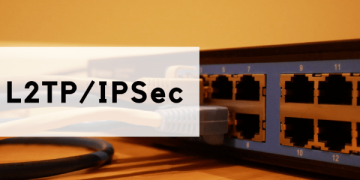
Generally, L2TP/IPSec is considered an extension and improvement of the PPTP protocol. However, the difference is that it uses double encapsulation: one sets up a PPTP connection, and the other has actual IPSec encryption.
There’s no doubt that double encapsulation makes this protocol more secure. However, it can make it slower than PPTP as traffic first gets converted into L2TP, and then the extra layer of encryption occurs.
It should be noted that L2TP doesn’t provide any encryption on its own. That’s why it often pairs with IPSec.
Like most other VPN protocols, L2TP/IPSec is straightforward to configure. Also, it usually comes pre-built into most of the modern platforms available today. That is why several VPN providers offer access to it.
However, some will go the extra mile by configuring it to ensure that it’s not blocked by NAT firewalls, making it difficult to exploit man-in-the-middle attacks.
Therefore, it won’t be wrong to say that L2TP/IPSec is one of the most secure protocols available. Furthermore, the fact that it uses AES-256 bit encryption means that there are no known vulnerabilities, even with claims that the NSA Prism Program compromised it, as with any proof.
Its only disadvantage is the fact that it defaults to use UDP on port 500. However, that makes spotting and blocking traffic easier.
So, when and why can you use L2TP/IPSec?
Generally, the L2TP/IPSec protocol is ideal for any average internet user looking for an excellent security level without spending much time struggling with compatibility.
4. PPTP
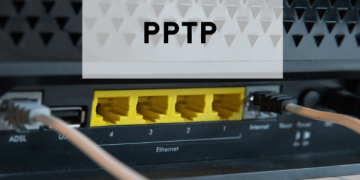
Point-to-point Tunneling Protocol (PPTP) is another older VPN protocol and has now found its world in folks looking to stream geo-blocked content. All thanks to its high speeds.
The protocol is seamless to configure, and most importantly, it’s already built into several VPN-capable devices and platforms.
It connects the internet and the intranet, like accessing the corporate office building’s network.
PPTP is one of the fastest VPN protocols, with a lower encryption standard. However, as it was initially designed to work with dial-up connections, now, with technological progress, PPTP doesn’t offer guaranteed security.
It all depends on your needs when you want to use the PPTP protocol. For instance, it has arguably the best connection speed (as it lacks most security features), making it a go-to choice when you want to unblock TikTok and other such services and platforms.
5. IKEv2

Another excellent VPN protocol is Internet Key Exchange Version 2, developed by Cisco and Microsoft. On its own, IKEv2 is merely a tunneling protocol that only provides a secure key exchange session. However, when paired with IPSec, it provides stealthy encryption and authentication.
It’s the best protocol when re-establishing a link after a temporal connection loss. Moreover, it’s an excellent option for switching connections across the network types, such as from WiFi to cellular.
It works best for mobile devices as the protocol reconnects seamlessly whenever a connection drops. As a result, IKEv2 is arguably the fastest protocol you can consider.
It’s also very secure as it supports many levels of AES encryption. Moreover, similar to L2TP, it uses the IPSec encryption suite. Finally, open-source versions are available if you want to get away from Microsoft’s proprietary version.
Given that it’s the most modern and advanced VPN protocol, IKEv2 is very stable and straightforward to set up.
It boasts native support for Windows, Blackberry, and iOS devices. Since IKEv2 is a relatively new entry in the protocols, it supports limited devices compared to others alongside minimum compatibility with older platforms.
Also, as much as it presents itself as a fast protocol, VPN providers are cagey about supporting it due to some practical reasons. For one, it has limited platform support. Secondly, it’s a closed system with corporate interests.
6. Wireguard

Wireguard is a new VPN protocol that looks more secure and faster to set up than all other protocols (even IKv2).
It boasts a smaller and simpler code base while offering all technical advantages. For instance, it provides up-to-date encryption, greater reliability, faster connection times, and exceptionally quicker speeds. All with a smaller code base than the rest of the VPN protocols.
Moreover, since Wireguard is open-source and uses only a single cryptographic suite, there are fewer chances for security holes.
It’s the best option for portable devices, especially for small embedded devices such as smartphones and the fully-loaded backbone routers.
Also, it’s worth noting that with Wireguard, your battery life will last longer compared to the other VPN protocols. That is because of the ChaCha20 encryption algorithm that it employs.
The protocol is compatible with most operating systems today. However, since Wireguard is still in development, it doesn’t have much cross-platform compatibility.
While Wireguard currently supports all other major devices, it works best with Linux. More testing is still underway with most VPN providers as they wait for the open-source project to release a more stable version.
What VPN protocol should I use?
Now, that sounds like an easy question.
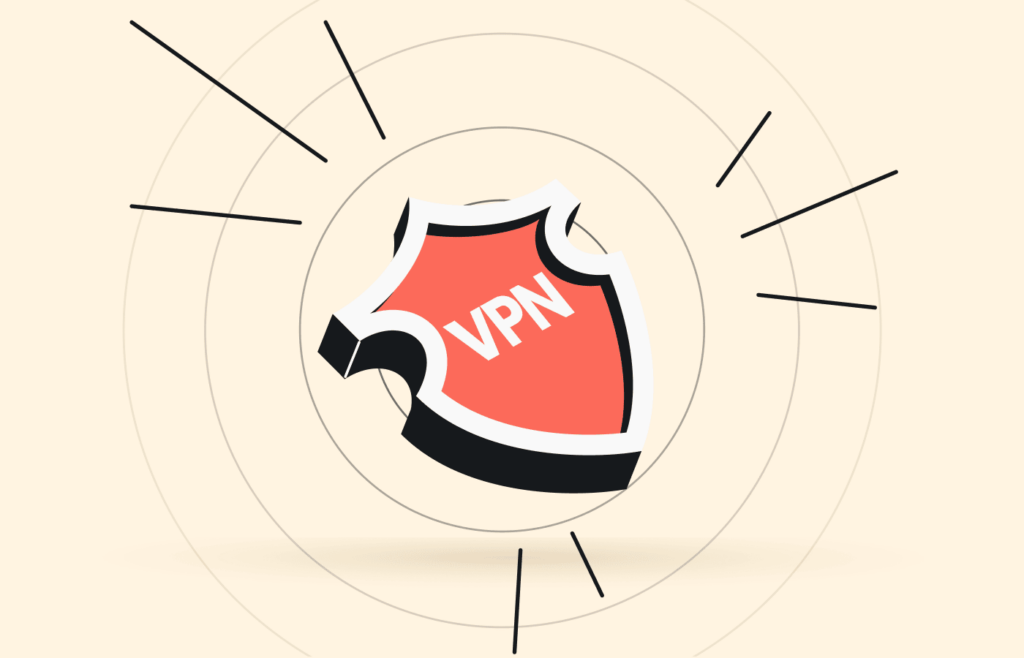
Unfortunately, it can be a complicated question to answer because when it comes to the “best VPN protocol,” it solely depends on what you’re looking to do online. Furthermore, it means that what another person considers the best protocol might be a below-par encryption protocol to others.
However, if you want to balance speed and security, the OpenVPN protocol is the best one always to consider.
Given its array of performance benefits, it’s the most recommended protocol. In fact, the best VPNs, such as ExpressVPN, use OpenVPN as a default protocol.
The OpenVPN protocol stands out because it can bypass several firewalls, offers the highest possible security levels, and is open-source. It also boasts several encryption methods and supports a plethora of cryptic algorithms.
It doesn’t mean that the other protocols are not worth considering; they all are good, too (that is why they still exist). But again, depending on your needs.
For instance, you can consider PPTP when all you’re looking for is speed, especially when you wish to unblock Netflix and other streaming services.
L2TP/IPSec VPN protocol will be an ideal choice when you want to download torrents safely, browse anonymously, access geo-blocked content, and won’t mind the drop in the connection speeds.
If you’re using your mobile device, IKEv2 is an excellent option (especially if you have a BlackBerry device). Also, it’s best when securing online traffic.
For Windows users, SSTP should make a good option as it offers decent online security and speed without the VPN protocol taking much of your CPU power.
Wireguard best fits Linux users, and it’s the option if you’re looking to experiment with a VPN protocol that delivers a great online experience.
Yet, as noted already, OpenVPN is the best VPN protocol overall. It ticks almost every box, from speed to security, and everything you might want in a suitable VPN protocol.
Is TCP or UDP better for VPN?
Your data transmission depends on the type of network protocol you use. There’re two types of network protocols; Transmission Control Protocol (TCP) and User Datagram Protocol (UDP). Both network protocols do the same job, only that one is reliable and the other is faster.
Both protocols transfer data over the internet to a web server from your device.
But which is better – TCP or UDP?
Fortunately, that will depend on what you want to do. For instance, if you’re after faster and constant data transmission, you should use UDP as your companion. TCP is only a reliable and stable protocol that you can use to transfer data while not losing any along the way.
Now, are they compatible with the VPN services available today?
Yes.
In fact, both work great with OpenVPN. This VPN protocol runs on both UDP and TCP, providing privacy and security of the highest level.
Also, here again, choosing the best depends on what you want to use your VPN for. For instance, UDP is the best alternative to TCP if you’re a gamer, use VoIP services, or like streaming. It may lose some packets needed for optimum security, but it won’t impact the overall connection much.
On the other hand, if used in such scenarios, TCP may lead to lags that you will definitely not like. Therefore, it’s easy to say that OpenVPN through TCP is ideal for uses like web browsing, emailing, and file transfer.
Is IKEv2 faster than OpenVPN?
Notably, IKEv2 can’t be used alone, so it’s always paired with IPSec. It handles the request as well as response actions.
Basically, it ensures that traffic gets secured by merely establishing and handling the security association (SA) within the authentication suite.
IKEv2 offers excellent speeds thanks to its improved architecture and efficient response process. Moreover, it boasts MOBIKE, meaning its speeds won’t slow down or even get interrupted whenever you change networks.
Now, the million-dollar question is; is IKEv2 faster than OpenVPN?
As you might have guessed from the above explanations, IKEv2 is faster than OpenVPN. That’s even true when OpenVPN uses the UDP network transmission protocol.
